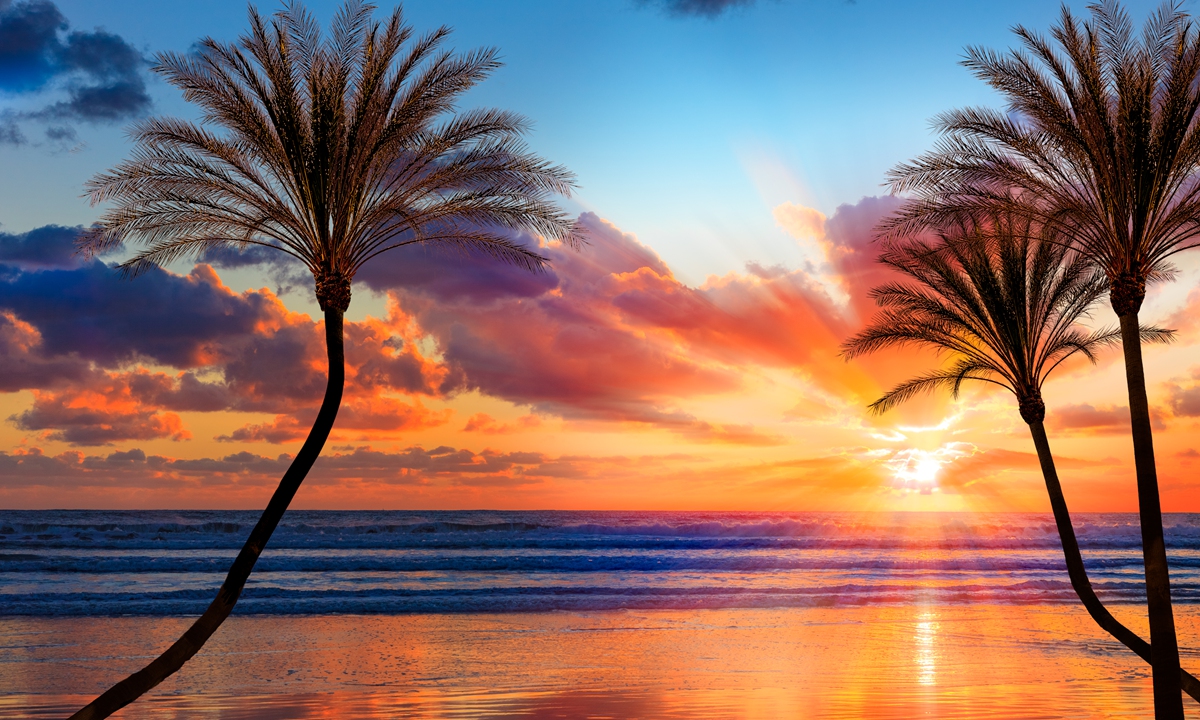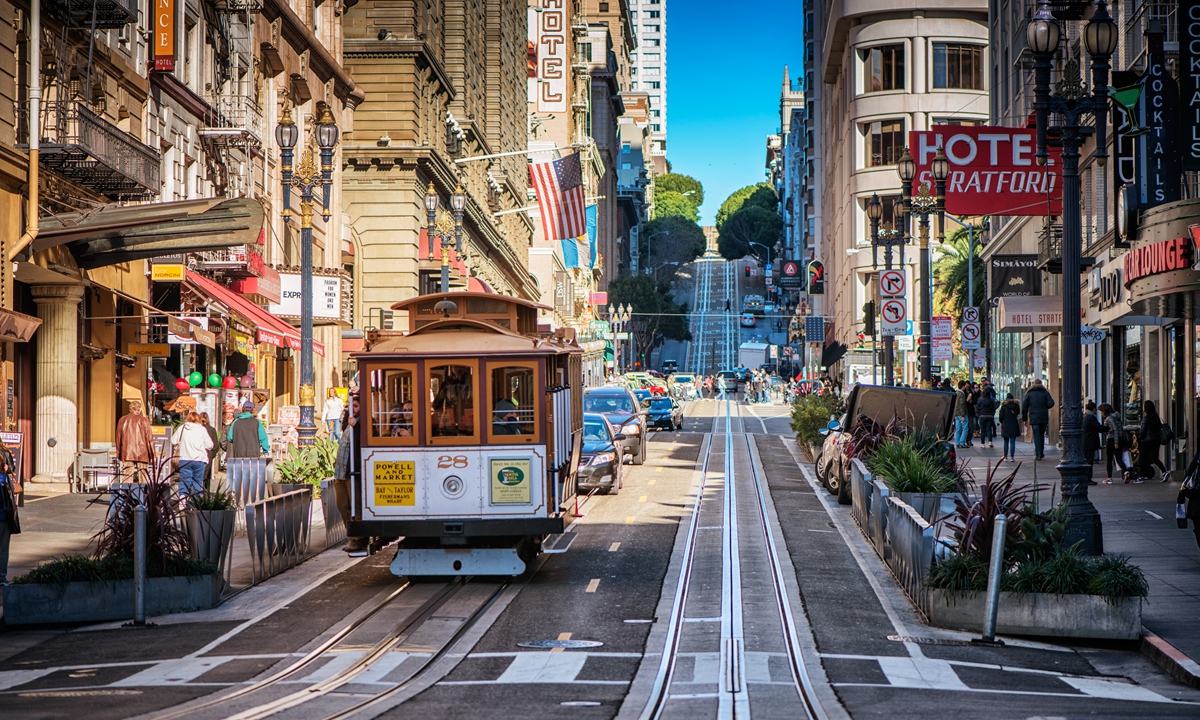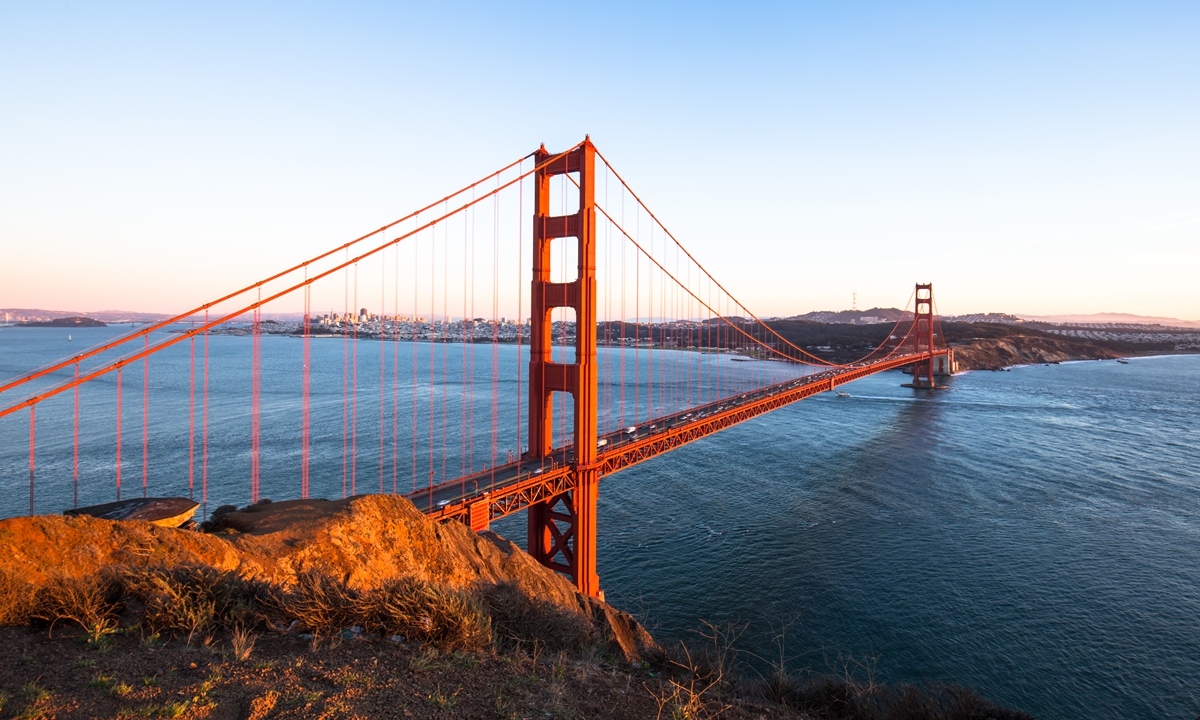ARTS / CULTURE & LEISURE
Raging wildfire forces evacuation of major US travel spot
A blazing resort

A beach in California Photo: VCG
Thousands of people were ordered to evacuate Monday as a huge wildfire loomed over a major US tourist spot, filling the air with choking smoke.
The Caldor Fire has already torn through more than 270 square miles (700 square kilometers), razing hundreds of buildings.
On Monday it was roaring towards South Lake Tahoe, the main resort town in the popular holiday area that straddles the California and Nevada border.
"The firefighting conditions, the fuels, are historic," said Cal Fire Incident Commander Jeff Veik, according to the San Francisco Chronicle. "We will put this fire out. (But) it's not going to be today."
The western US is burning at an alarming rate, with over 2,700 square miles blackened by late August in California alone - more than double the area consumed by this time in an average year.
The fires are being driven by a historic drought that has left swathes of the region parched, as man-made climate change takes a visible - and painful - toll, and people living in the area are forced to flee.
"I got a knock at 10 pm last night with a warning to be ready," South Lake Tahoe resident Corinne Kobel told the Sacramento Bee newspaper.
"At 10 am this morning, it was the sheriffs kicking us out. I am freaking out."
Kobel was among the 22,000 people ordered out of their homes on Monday morning, joining tens of thousands of others trying to escape the fire's relentless march.

A street view in San Francisco, California Photo: VCG
Traffic jam
An AFP journalist witnessed streams of traffic leaving the city, with cars and RVs clogging the main roads.
Among those stuck on the road was Mel Smothers, 74, who was whiling away the time spent in a traffic jam by playing his violin.
Smothers, who has lived in Tahoe since the 1970s, said this was the first time wildfires had chased him out. But it wouldn't be the last.
"This is paradise, but you know with the recent fires, Lake Tahoe changed," he told AFP.
"This is the way it's going to be from now on. Every year now we have these fires.
"August is beautiful but probably it's going to be smokey from now on."
On Sunday as the fire tore through the Twin Bridges area, there were incongruous scenes as flames raged around ski lifts.
Snow cannon - usually used to help keep the pistes covered in winter - were turned on to try to keep the area wet.
Cal Fire director Thom Porter, said the fire had grown by more than 30 square miles overnight after the air above it cleared.
"When air clears, it's taking the lid off your pot of boiling water; all of a sudden there's that plume of heat and steam that comes out," he said, according to the Sacramento Bee.
"Same thing happens on a fire. Also sucks in oxygen from all directions, puts fire and spot fires in all directions."

Above: Golden Gate Bridge in California Photo: VCG
Winter sports spot
The Caldor Fire began on August 14, and quickly spread through the Eldorado National Forest.
Smoke from the blaze has been threatening tourist spots around Lake Tahoe for a week, filling the air with a choking haze.
The alpine lake is known for its clear waters, and the areas surrounding it boasts spectacular scenery, including some of the most popular winter sports resorts in the western US.
The blaze is one of scores across the region that is stretching the resources of local firefighters.
Further north, the huge Dixie Fire has ripped through more than 1,100 square miles in the six weeks since it erupted.
Thousands of firefighters and other emergency personnel are involved in battling the fires, which are fanned by gusting winds and fed by tinder-dry fuel.



